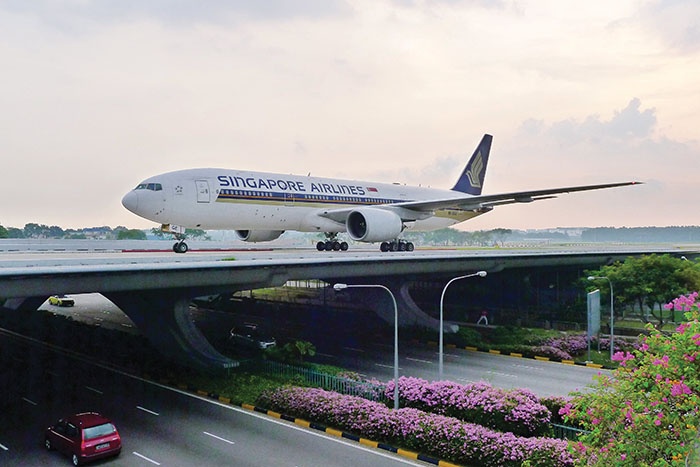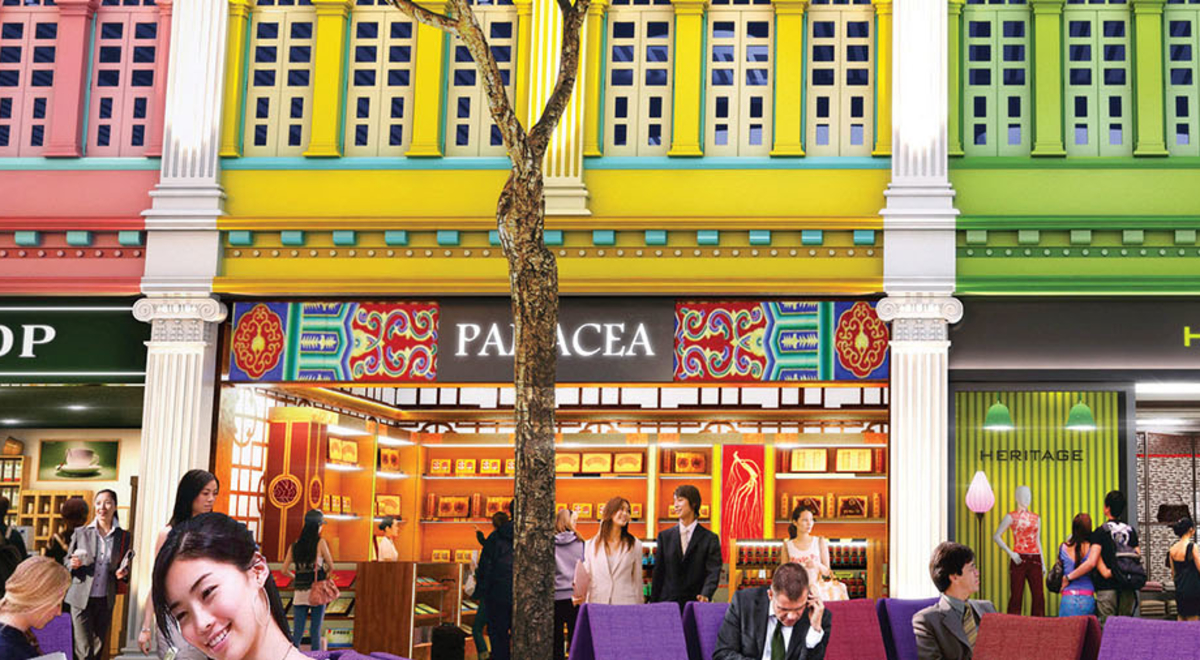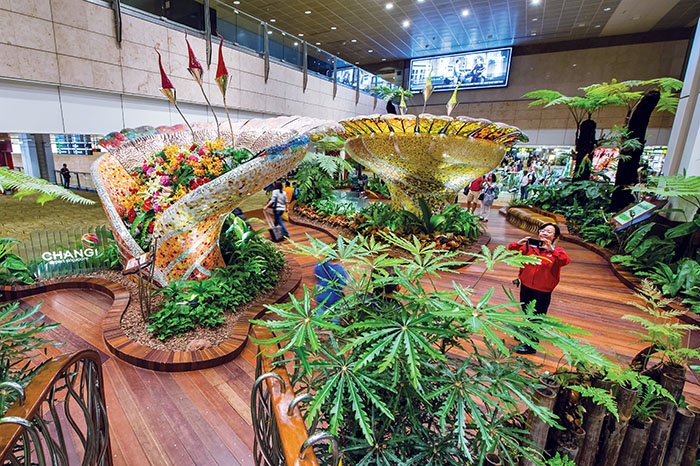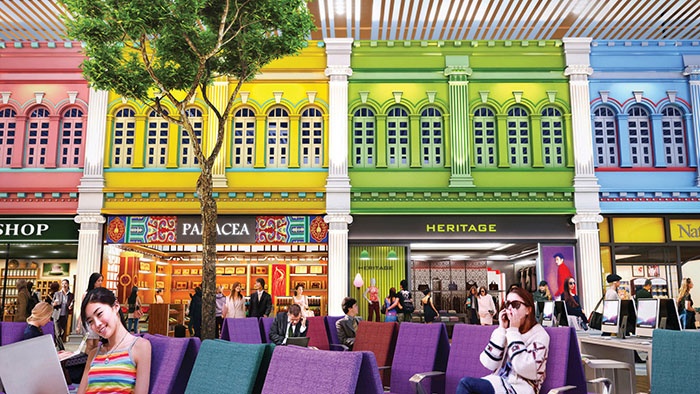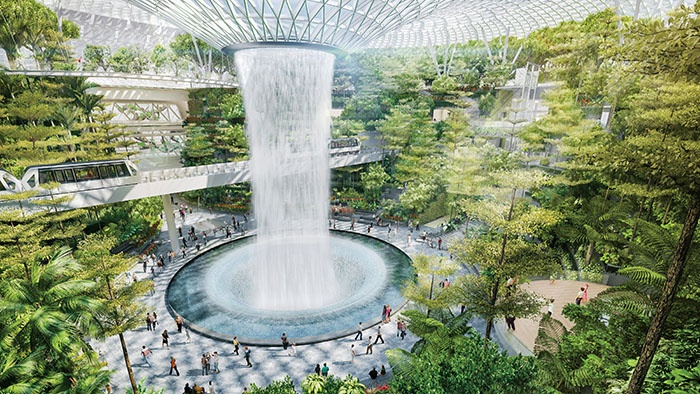Disembarking from an eight-hour flight from Australia, the unexpected sensation of humidity is something of a welcome relief. Not many airports around the globe offer a taste of life – and air outside the terminal, but this is just one of the many things that help make Singapore Changi Airport more of a destination and less of a transit hub.
Named the world’s best airport for the sixth year running in the Skytrax World Airport Awards, Changi is the home base for Singapore Airlines and, thanks to its location, a common stopover point en-route to destinations across Asia, the Middle East and Europe. While other airports around the globe are starting to look at ways to improve the traveller experience, Changi has long been on top of the game.
Over 7,200 planes pass through Changi Airport each week. (Image: Changi Airport)
I remember on my first stopover here, en-route to Europe 15 years ago, having access to a beautiful spa and shower for not much more than spare change – something many airports still don’t offer outside airline lounges.
Changi Airport has more than 7,200 planes passing through each week, but this is just a hint of what this aviation hub is all about. It’s more like a shopping mall turned entertainment hub turned resort, surrounded by about 500,000 plants. (With a permanent horticulture team on site to look after them, of course).
During your Changi stopover, you can catch the latest blockbusters for free at movie theatres in Terminals 2 and 3.
In Terminal 1, you can take a dip in the Balinese-style rooftop pool or wander the Cactus Garden, home to more than 40 species of cacti and succulents from around the world.
The colourful Enchanted Garden in Terminal 2. (Image: Changi Airport)
In Terminal 2 catch some rays in the sunflower garden, while Terminal 3 is home to a four storey-tall slide as well as the world’s first airport butterfly garden, where more than 1,000 butterflies thrive in a tropical oasis. There are art installations galore, coffee to rival the best cafes in Melbourne and cuisines from around the globe. Changi Airport is a photographer’s paradise as well, designed for both functionality and beauty.
Don’t want to stay put? If you’re passing through Terminals 2 or 3 and have at least 5.5 hours between flights you can leave the airport for a highlights tour of Singapore, discovering the city’s rich architectural and multicultural heritage.
Classic Peranakan style shopfronts line the departure lounge. (Image: Changi Airport)
While it would be forgiven for doing so, Changi Airport Group isn’t resting on its laurels. In 2019 Changi is set to unveil Jewel, a 10-storey, mixed-use development connecting Terminals 1, 2 and 3. Set inside a huge glass and steel dome, Jewel connects verdant landscaping with fresh retail concepts, garden eateries and interactive entertainment.
Explore Canopy Park, where you can walk on sky nets above the treetops – ideal for stretching the legs between flights – or get lost in Singapore’s largest hedge maze, and be mesmerized by Rain Vortex, the world’s largest indoor waterfall.
The rain vortex in The Jewel. (Image: Changi Airport)
With a record 62.2 million passengers in 2017, Singapore Changi is also about to begin work on a fifth terminal, T5, which will provide additional capacity
for up to 50 million passengers and 100 more aircraft stands. Flights take off from Changi to more than 400 cities worldwide, yet it’s movement on the ground that make this airport so much more than a transport hub.
singapore airports
